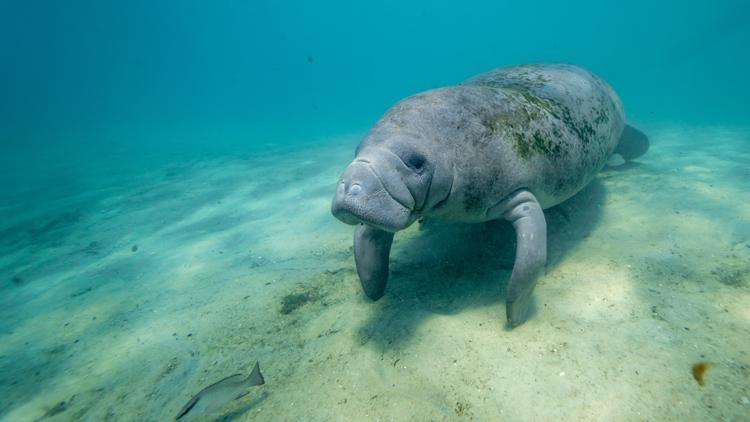Share this @internewscast.com

Wildlife officials urge boaters to slow down as manatees leave winter habitats, with patrols enforcing speed limits to prevent injuries to the gentle giants.
TAMPA, Fla. — As manatees begin to disperse from their winter habitats, wildlife officials are urging boaters to go slow and keep an eye out.
When temperatures dip, the slow-moving sea cows migrate to power plant discharges and warm-water sites. But, as temperatures rise in the spring, they will be going back to rivers, canals and nearshore waters.
From April 1 through Nov. 15, seasonal manatee zones require boaters to slow down in certain areas to prevent manatees from being injured or killed by boats or other personal watercraft.
“Boat strikes continue to be a major threat to Florida manatees. FWC law enforcement officers patrol state waters to inform boaters of the seasonal manatee speed zones and take appropriate enforcement actions,” officials said in a news release.
Manatees have been attracted to warm-water discharges for decades, following a watery travel route that mother manatees have taught to manatee calves.
The protection zones are marked by waterway signs and maps of the zones are available online here by clicking on “Data and Maps.”
Locals can also help protect the gentle giants by wearing polarized glasses and keeping an eye out for visible snouts or manatee “footprints,” which are large circles on the water that are indicators that they are below the surface.
The manatee was downgraded from endangered to threatened in 2017 and will remain in that classification.
Manatees are a protected species and it is illegal to feed, harass or harm them. Officials urge people to report injured, distressed, orphaned, sick or dead manatees to the FWC’s Wildlife Alert Hotline at 888-404-FWCC (3922) so trained responders can assist.

















